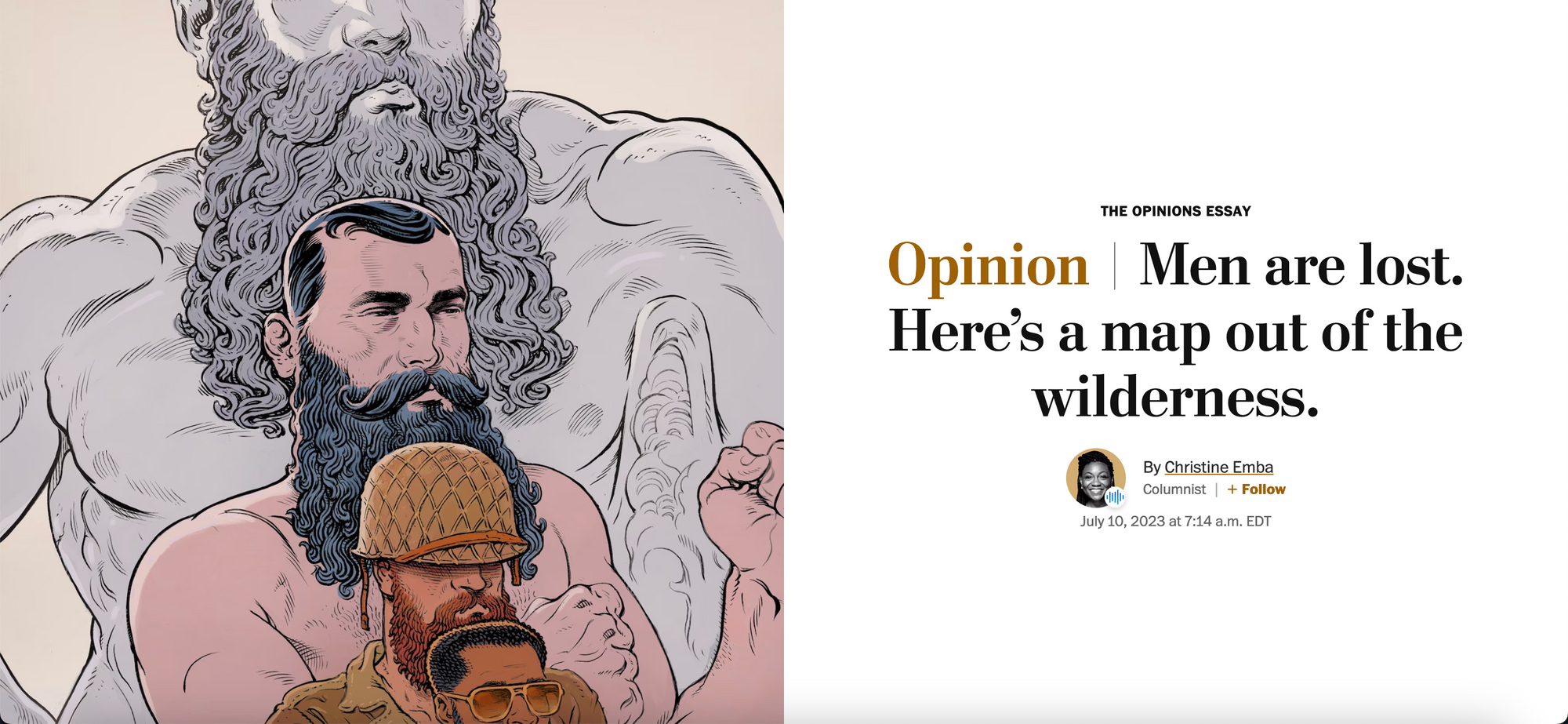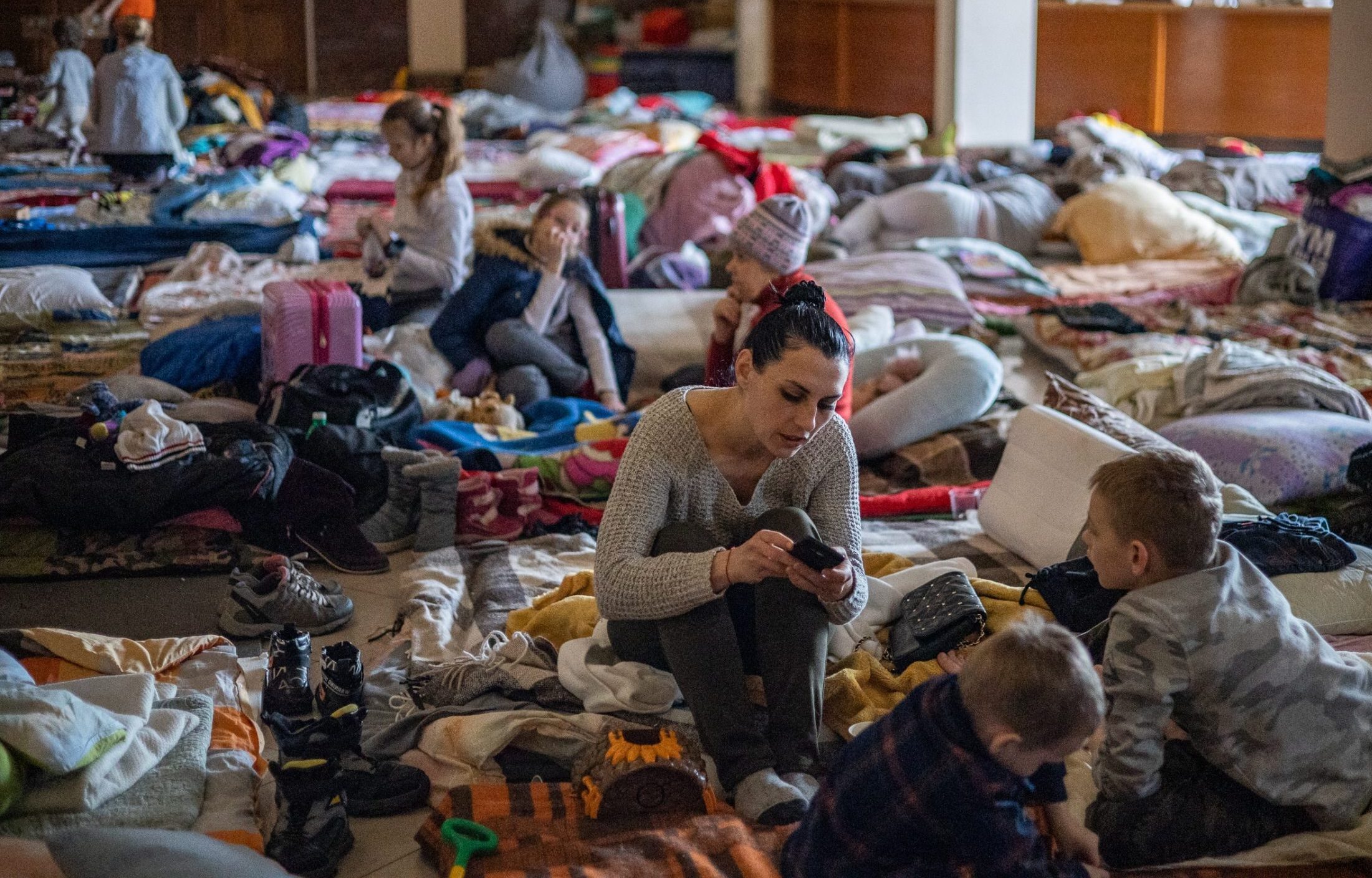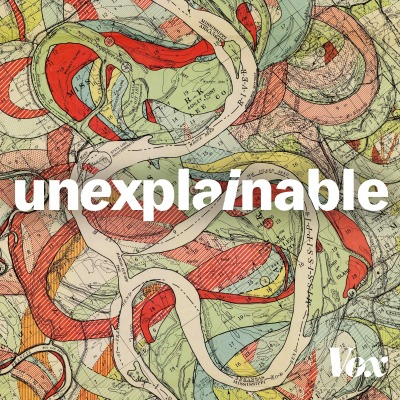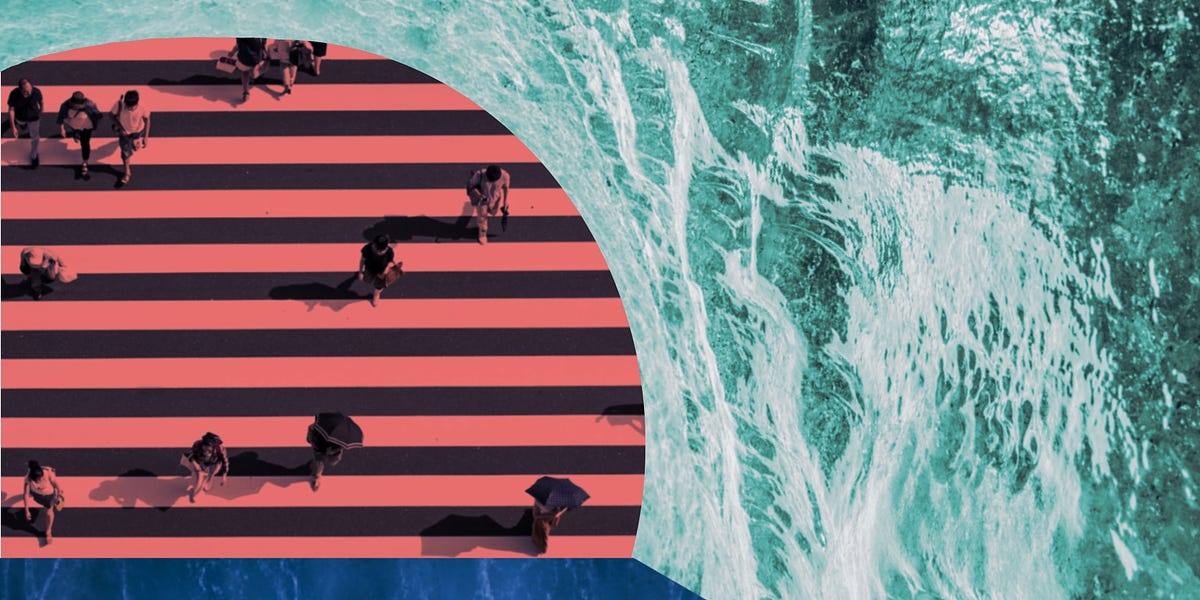What are men for?
«Past models of masculinity feel unreachable or socially unacceptable; new ones have yet to crystallize.» (#454)
Let's skip the intro and dive right into this week's recommendations, there are some good ones:
1. Men are lost. Here’s a map out of the wilderness.
«Past models of masculinity feel unreachable or socially unacceptable; new ones have yet to crystallize. What are men for in the modern world?» An excellent essay on men confused about their identity, and how it leaves many vulnerable to simplistic comfort from right-aligned masculinity gurus.

📚 If you understand German, I highly recommend my friend Julian's debut novel «Zeit der Mauersegler». A story of friendship and love, and an invitation to reflect on masculinity and how it can be reimagined.
2. The World’s Therapists Are Talking to Ukraine
We hear a lot about the weapons other countries are providing Ukraine with to support them in defending themselves against the Russian invasion. This story is about a different kind of support, just as important, especially in the long run: remote therapy for Ukrainians.

3. It’s getting harder to see
Around the world, more and more people are nearsighted. It looks like something about the way we live today is making our eyesight worse, but what? No, staring at screens isn't the answer. Vox' Unexplainable podcast explains.

4. How Doctors Die
What does it say when those who know most about all the available options to stave off death often choose to not use them and go gently instead?

5. Staring at the tsunami
Useful to remember for all current and future crises: Humans are generally quite bad at assessing risk and at updating it with new information, leading to unrealistic optimism.

What else?
- The power of a newspaper front page
- Fun little game: How accurately can you paint a Clone-a-Lisa in 60 seconds.
- A clock where the current time is in a song title.
- Current temperatures, all around the world: Zoom Earth.
- Can a Lego Car Roll Downhill Forever?
- «A lot of good company culture is just paying people well and leaving them alone.» — Morgan Housel
The Future of...Travel
Jet trails fade away,
Virtual worlds take their place—
Yet, feet still roam Earth.

A gem from the archive
A fascinating insight into what it takes to master The Knowledge, the legendary test every London cab driver needs to take. It has been called the hardest test, of any kind, in the world — and after reading this, it feels hard to disagree.

Thanks for reading. I wish you a nice weekend and hope to see you again next Friday!
— David 👋






